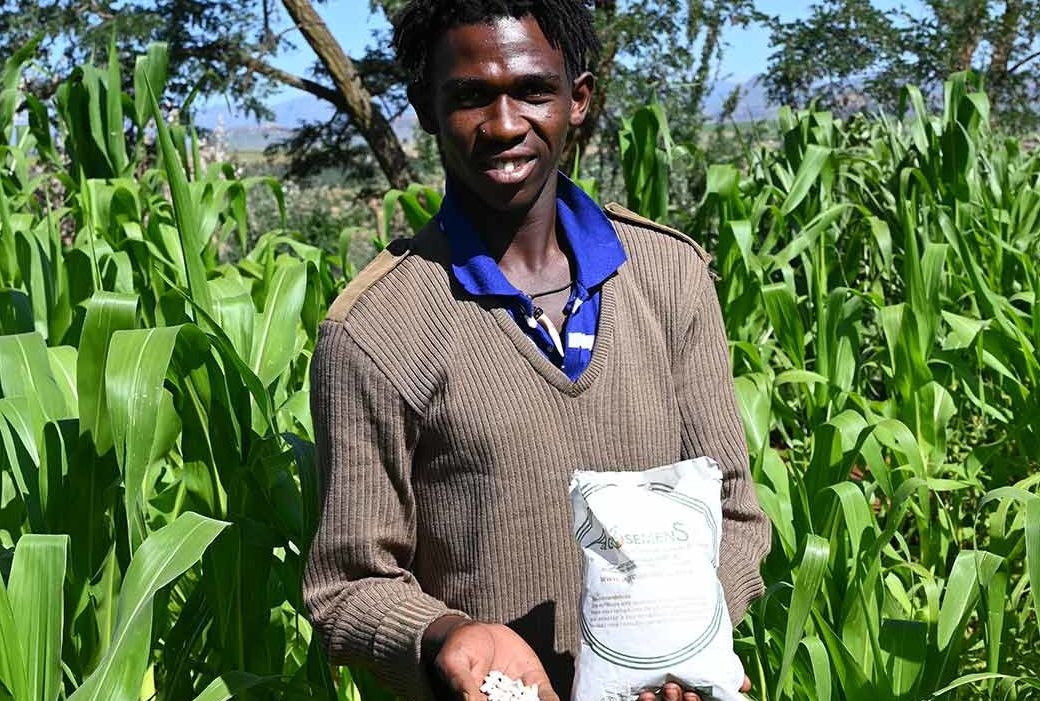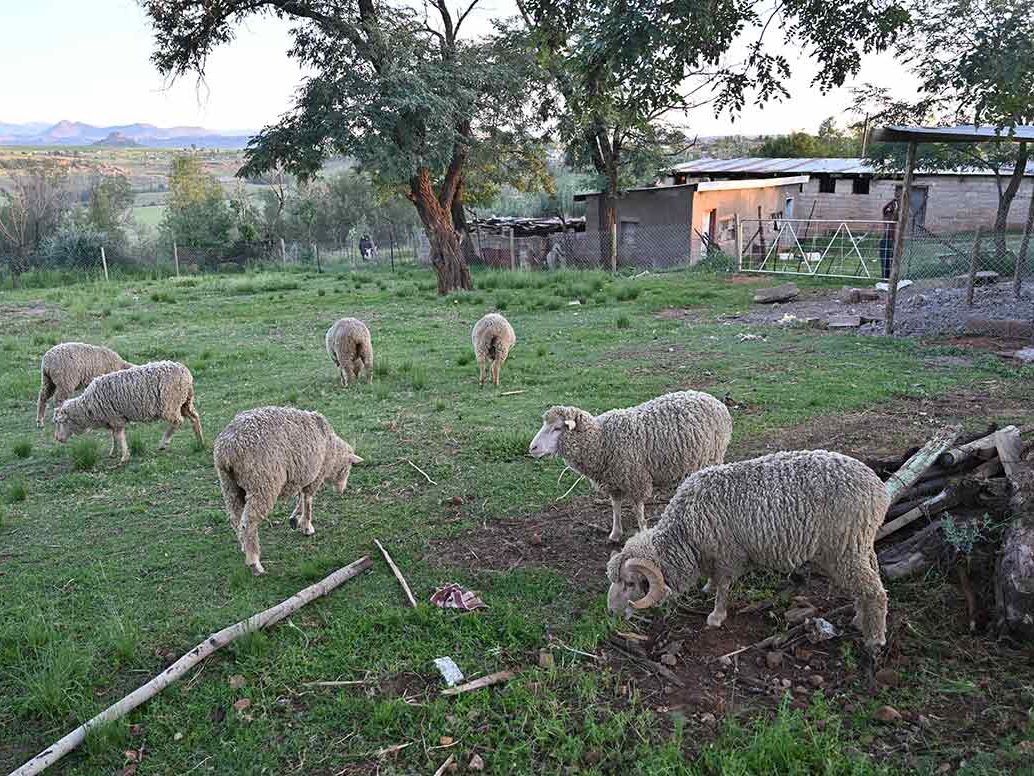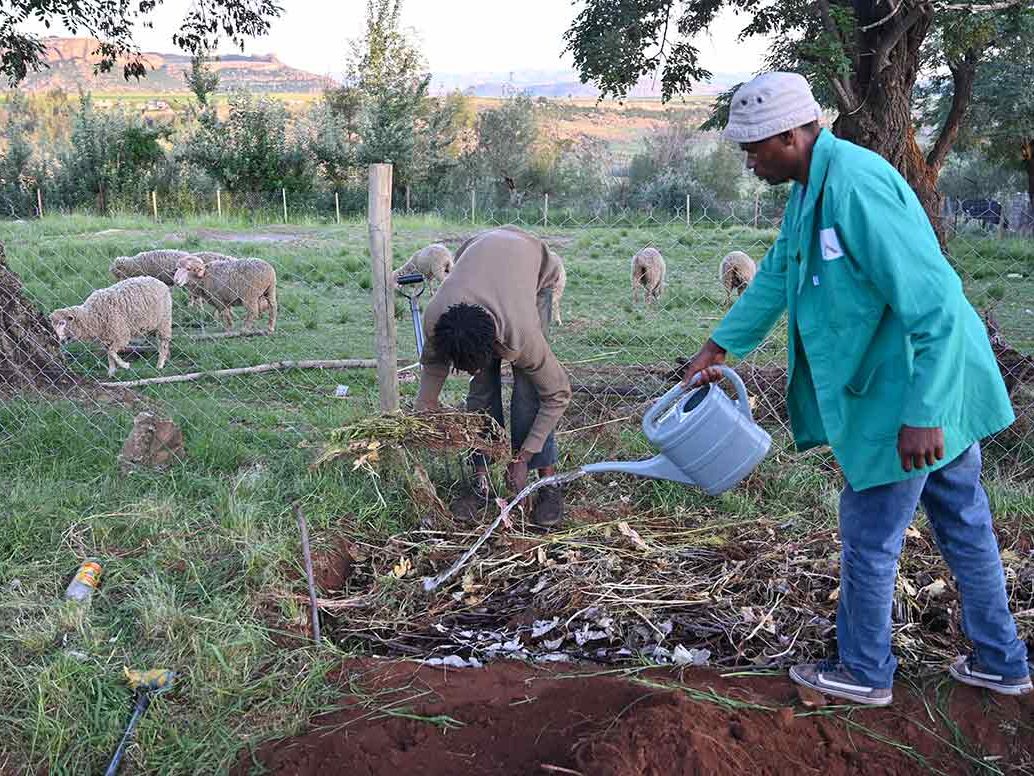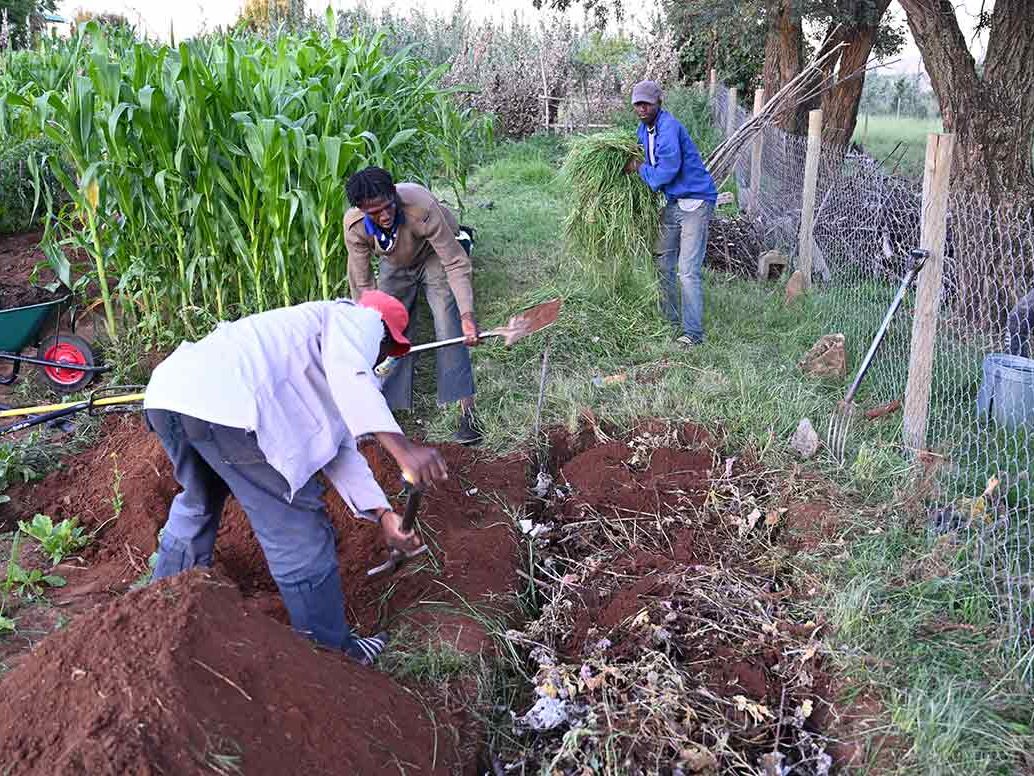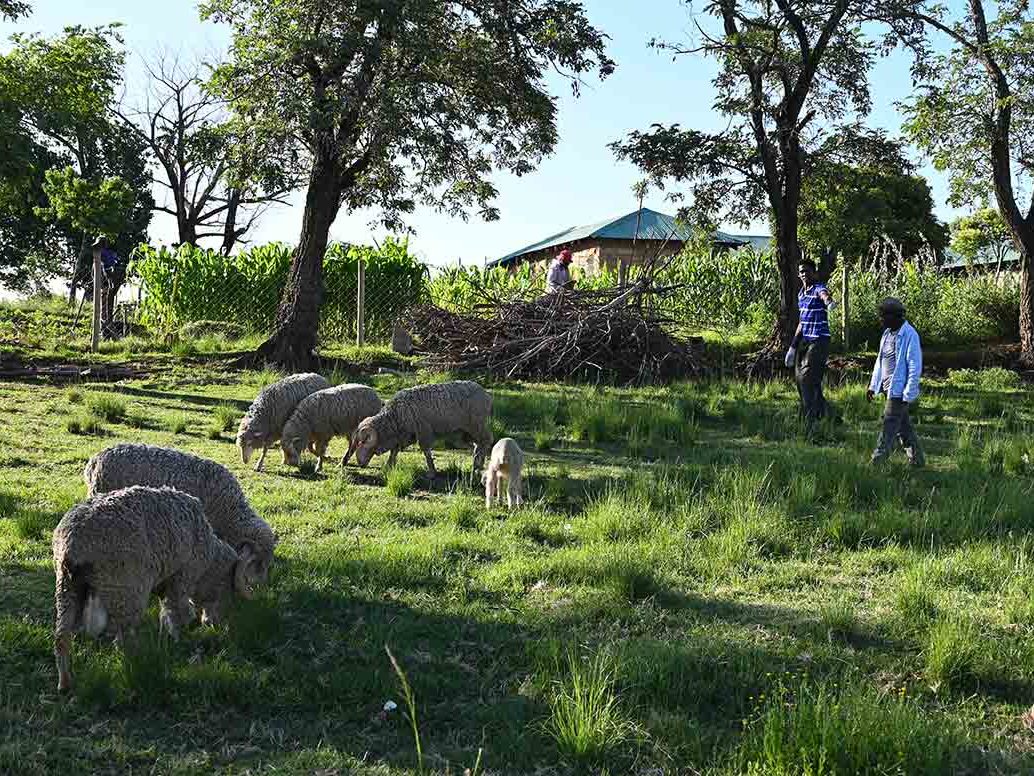In 2015, The Ivory Foundation began supporting St. Paul School in Hlotse, Lesotho, an institution dedicated to deaf and hearing-impaired children, by establishing a pilot farm within its premises. This initiative was led by an agricultural manager trained in sign language. The project had two objectives:
- Firstly, to meet the school canteen’s needs by producing vegetables, eggs, milk, and pork.
- Secondly, to train students, particularly older ones, in skills that would be useful for their return to their respective villages. Six youths were trained in horticulture and animal husbandry, thereby contributing to the school’s life.
To accommodate additional youths in subsequent years while providing opportunities for trained former students, The Ivory Foundation helped them organize to gain autonomy. This led to the establishment of the NGO “Farming Our Future,” whose board comprises exclusively former students of the school for the deaf and hearing-impaired.
After testing their skills on a 3,000-square-meter micro-farm equipped with basic housing in St. Monica for over two years, it became necessary to find a larger site to ensure the project’s sustainability.
With financial support from The Ivory Foundation, Farming Our Future was able to acquire 3 hectares of land in its own name at Levi’s Nek, located 10 km from St. Paul School, to construct a double dormitory with bathrooms and a large kitchen to accommodate the 6 youths and a new group of 6, totaling 12 students. A second unit was set up to host international volunteers invited to contribute their expertise to the project’s development, while a third unit was built to house the center director and their office.
Once completed, the farm will include organic vegetable crops, chickens, rabbits, sheep, pigs and cows. The project also promotes sustainable farming techniques through learning programmes based on the principles of permaculture, agroforestry and the circular economy. The model farm will offer comprehensive agricultural vocational training, both in terms of know-how and economic management, with the aim of guiding young deaf and hard-of-hearing people in Lesotho towards an independent activity capable of providing for their future needs.
The farm develops both organic vegetable cultivation and the raising of chickens, rabbits, sheep, pigs, and cows. Additionally, the project promotes sustainable agricultural practices through educational programs based on the principles of permaculture, agroforestry, and circular economy.
To enhance participants’ autonomy and equip them with additional skills, some were trained in woodworking and metalworking. Consequently, a dedicated woodworking and metalworking workshop was erected on-site to enable them to construct and repair necessary infrastructure.
Levi’s Nek farm thus offers comprehensive agricultural vocational training, both in terms of practical skills and economic management, aiming to guide deaf and hearing-impaired youth from Lesotho toward independent activities capable of meeting their future needs.
In this film, made in 2020 by Alexandre Berger, Leepa Mosehle, farm manager at St Monica Farm, explains how the farm works and its aims.

